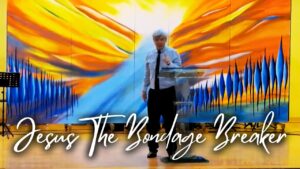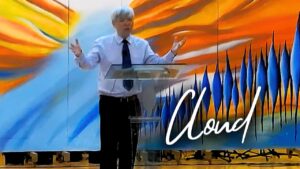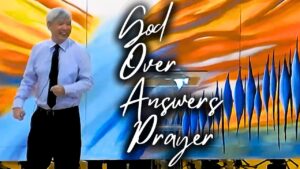Title: Understanding the importance of the Day of Pentecost.
Scripture Reading: Leviticus 23:1-2; 4-8; 9-11; 15-16; 21
The Lord said to Moses, 2 “Say to the people of Israel, The appointed feasts of the Lord which you shall proclaim as holy convocations, my appointed feasts, are these.’
These are the appointed feasts of the Lord, the holy convocations, which you shall proclaim at the time appointed for them. 5 In the first month, on the fourteenth day of the month in the evening, is the Lord’s Passover. 6 And on the fifteenth day of the same month is the feast of unleavened bread to the Lord; seven days you shall eat unleavened bread. 7 On the first day you shall have a holy convocation; you shall do no laborious work. 8 But you shall present an offering by fire to the Lord seven days; on the seventh day is a holy convocation; you shall do no laborious work.”
And the Lord said to Moses, 10 “Say to the people of Israel, When you come into the land which I give you and reap its harvest, you shall bring the sheaf of the first fruits of your harvest to the priest; 11 and he shall wave the sheaf before the Lord, that you may find acceptance; on the morrow after the sabbath the priest shall wave it.
‘You shall also count for yourselves from the day after the sabbath, from the day when you brought in the sheaf of the wave offering; there shall be seven complete sabbaths. 16You shall count fifty days to the day after the seventh sabbath; then you shall present a new grain offering to the Lord.’
‘And you shall make proclamation on the same day; you shall hold a holy convocation; you shall do no laborious work: it is a statute for ever in all your dwellings throughout your generations.’
The bible mentions several important feasts in the book of Leviticus. The several feasts are known as the LORD’s appointed times. They are to be proclaimed as holy convocations (assemblies, meetings).
There are at least 7 feasts mentioned in Leviticus
Among all the feasts, there are three annual feasts that must be attended by all males at the Tabernacle or late at the Temple.
- The LORD’s Passover and the feast of unleavened bread
Leviticus 23:4-8 says,
4“‘These are the appointed times of the Lord, holy convocations which you shall proclaim at the times appointed for them. 5In the first month, on the fourteenth day of the month at twilight is the Lord’s Passover. 6Then on the fifteenth day of the same month there is the Feast of Unleavened Bread to the Lord; for seven days you shall eat unleavened bread. 7On the first day you shall have a holy convocation; you shall not do any laborious work. 8But for seven days you shall present an offering by fire to the Lord. On the seventh day is a holy convocation; you shall not do any laborious work.'”
The first feast is the Passover and unleavened bread. It is mentioned here.
- The feast of first fruits
The next feast is the feast of first fruits
It says here.
9Then the Lord spoke to Moses, saying, 10“Speak to the sons of Israel and say to them, ‘When you enter the land which I am going to give to you and reap its harvest, then you shall bring in the sheaf of the first fruits of your harvest to the priest. 11He shall wave the sheaf before the Lord for you to be accepted; on the day after the sabbath the priest shall wave it.’
This is the discussion of the initial offering of first fruits. You are to wave it for it to be accepted. The acceptance is the result of the appropriate sacrifice or the person offering the sacrifice.
- The feast of weeks or the feast of Pentecost
The last one which we are going to discuss is the concentration of today’s message. It is found in Leviticus 23:15-16; 21
15“‘You shall also count for yourselves from the day after the sabbath, from the day when you brought in the sheaf of the wave offering; there shall be seven complete sabbaths. 16You shall count fifty days to the day after the seventh sabbath; then you shall present a new grain offering to the Lord. 21On this same day you shall make a proclamation as well; you are to have a holy convocation. You shall do no laborious work. It is to be a perpetual statute in all your dwelling places throughout your generations.'”
This is the discussion of the festival at the end of the harvest season. This is the feasts of weeks. It happened on the fiftieth day.
What happened in the Upper room when Jesus told his disciples to receive the Holy Spirit. That was the baptism of the Holy Spirit. The important number here is 50.
The New Testament explicitly tied these three feasts to Jesus. First the Passover and the feast of unleavened bread. Jesus’ death on the cross coincide with the Passover. He is the sacrificial lamb whose blood allows God’s wrath to pass over us. Easter, which we will be celebrating in March or April coincide with the feast of unleavened bread. Second, the feast of first fruits. Jesus’ resurrection is the first fruit of the harvest God will make from the dead. Third the feast of weeks. It took fifty days. On the day Pentecost, while Israel was celebrating the gift of the harvest, the first Christiancelebrate the gift of the Spirit of God and the harvest of believers that will soon follow.
Pentecost is a feast commanded in the Old Testament Law. It is God’s appointed time. In order to understand the significance of what happened on this day, it is recorded in the book of Acts. I want you to understand the purpose of Pentecost to kickstart the mission God has had for the people in Evangel Tabernacle and also the people in Iloilo City. It is the fill the earth with God’s presence. This is the mission God started in the Garden of Eden. Jesus won on the cross, and the Spirit ignited on Pentecost.
Let’s try to understand the difference between John 20:22 and Acts 1.
John 20:22 says, ‘And when he had said this, he breathed on them, and saith unto them, Receive ye the Holy Ghost:’
‘When the day of Pentecost came, there were all together in one place. Suddenly a sound like the blow of a violent wind came from heaven and filled the whole house where they were sitting. They saw what seemed to be tongues of fire that separated and came to rest on each of them. All of them were filled with the Holy Spirit and began to speak in other tongues as the Spirit enabled them.’
So how do you explain the particular difference between John 20:22 and Acts 2:1-4?
- Power from on High
In John 20:21-22 you must understand that Jesus was just resurrected. And Jesus told themto receive the Holy Spirit. We believed they did not receive the Baptism of the Holy Spirit at that time. They did receive the Holy Spirit in John 20:22. But they did not receive power from on High.
Jesus goes on to emphasize its importance. In Acts 1:4 it says, ‘And being assembled together with them, He (Jesus) commanded them not to depart from Jerusalem, but to wait for the Promise of the Father, ‘which’ He said, ‘you have heard from me; for John truly baptized with water, but you shall be baptized with the Holy Spirit not many days from now.’ This was exactly 10 days later, which is truly not many days.
- Not the fullness of the Holy Spirit
I can only say that in John 20:22 it was not the fullness of the Holy Spirit, they received on the day of His resurrection.
- The Holy Spirit Baptism is the symbolic representation of God today
The Day of Pentecost happened after Jesus ascended to heaven. I believed that this is the era of the dispensation of the Holy Spirit and it will end soon. God is a triune God. God that father was mostly represented in the Old Testament. God, the Son was represented when Christ came upon earth, 2000 years ago. God the Holy Spirit has been represented until today.
Genesis 2:7 says, ‘And the LORD God formed man of the dust of the ground, and breathed into his nostrils the breadth of life, and man became a living being. What gives man life? The Holy Spirit. As God breathed (the Holy Spirit) into Adam and gave Him physical life, God the Son breathed into His disciples and gave them spiritual life. Isn’t this is what Jesus had done for us? He gave us the Holy Spirit.
- The Power of the Holy Spirit.
The Holy Spirit baptism remined us of the power of Jesus’ resurrection.
In the same manner, I say to you now, ‘receive the Holy Spirit’. Why? Because
- The gift of the Holy Spirit is promised us
- The gift of the Holy Spirit is worth waiting for
- The gift of the Holy Spirit comes as He wills, often not according to our expectation
- The gift of the Holy Spirit can come upon not only individuals, but also upon groups.
- The gift of the Holy Spirit is mighty, full of force and great power





